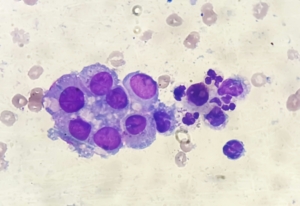
Regina Revilla/Emilio Munoz: The Importance of innovation in weak economics
Since the beginning of the year, there have been numerous government initiatives in the most advanced countries to implement and strengthen policies to support biotechnology.
The UK launched a strategy early this year to promote the life sciences through a framework agreement between the pharmaceutical and biomedical industries, universities and the NHS that is aimed at making research more efficient. Sweden also implemented a national strategy to produce an economy based on biotechnology and sustainable development. The US unveiled the Fostering a Biobased Economy’ programme, while Europe is working on the Innovating for Sustainable Growth: a Bioeconomy for Europe’, which focuses on applying innovation and biotechnology in such areas as agriculture and energy.
ASEBIO thinks that the Spanish Government should follow this lead. Biotechnology is a field of scientific endeavour in which Spain is already successful. That success is attributable to many factors: a long-established scientific community that has attained a very high standard in qualitative and quantitative terms; strategies and policies to foster biotechnology, promoting an appropriate linkage between science and business, which has made good though insufficient progress; appropriate cooperation between the public and private sectors (e.g. ASEBIO, SEBIOT, SEBBM); a successful move to internationalisation and competitiveness (e.g. BioSpain, Zeltia, Grifols, Oryzon, Progenika); and intelligent use of the diversity of niches that biotech offers.
Those factors make Spain a country to be reckoned with in working towards a sustainable bioeconomy, but the industry here needs regular funding, continuous support for links between the public and private sectors, and clear strategies towards internationalisation and competitiveness. There are a number of success stories among Spanish companies, firms with a wholehearted commitment to R&D and innovation. They want biotechnology to play a more prominent role in the transformation of society and the economic model, with a tax policy that fosters the development of biotech, more uniformity in autonomous region policies, and determined support from public and private funding. This will not only facilitate the creation of technology start-ups, but also finance proofs-of-concept to enable companies to bring products to market.
The BioSpain 2012 event showcased our potential. It saw over 1,800 attendees (+20%), 762 companies (+9%), 217 exhibitors (+29%), an international presence amounting to 28% of the total, and a partnering section that hosted nearly 3,000 business development meetings (+29%).
The time has come for us to help Spain rise from the ashes of its beleaguered economy and expand, buoyed up by innovation. We have the flame, and the proposals to achieve it: promotion of public procurement of innovative technology, enhancing Spain’s presence in European projects, establishment of a stable framework and favourable tax treatment, determined support for entrepreneurs and innovative products, and encouragement for large industrial groups to get involved in this sector. We have the potential here and now to catalyse a recovery from the crisis. To that end, we offer our full support at any time to politicians and businessmen who are willing to listen, and who are receptive to a common project that can effectively produce growth.
Regina Revilla Pedreira
Regina Revilla Pedreira is the President of Asebio since July 2011. During her career, the Director of Policy and Communication at Merck, Sharp & Dohme (España) has been Pharmacy General Director in the Ministry of Health.
Emilio Munoz
Emilio Munoz is a member of the National Research Council of Spain (CSIC) and the President of ASEBIO’s Scientific Committee. He also has been the General Director for Science Policy in Spain and the General Secretary of the Spanish National Plan on R&D. He has been elected to the French Legion of Honour for his achievements.


 Unsplash+
Unsplash+
